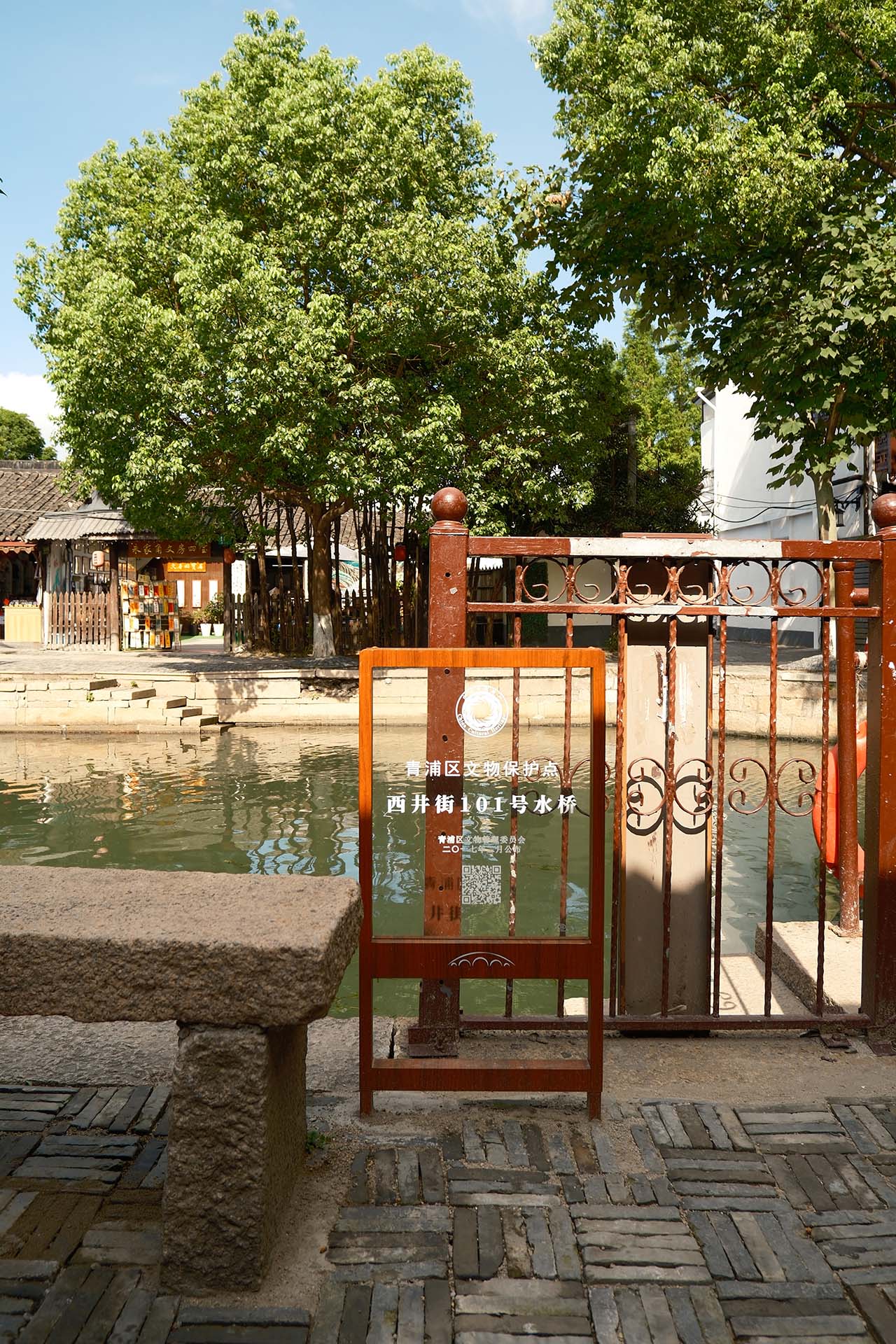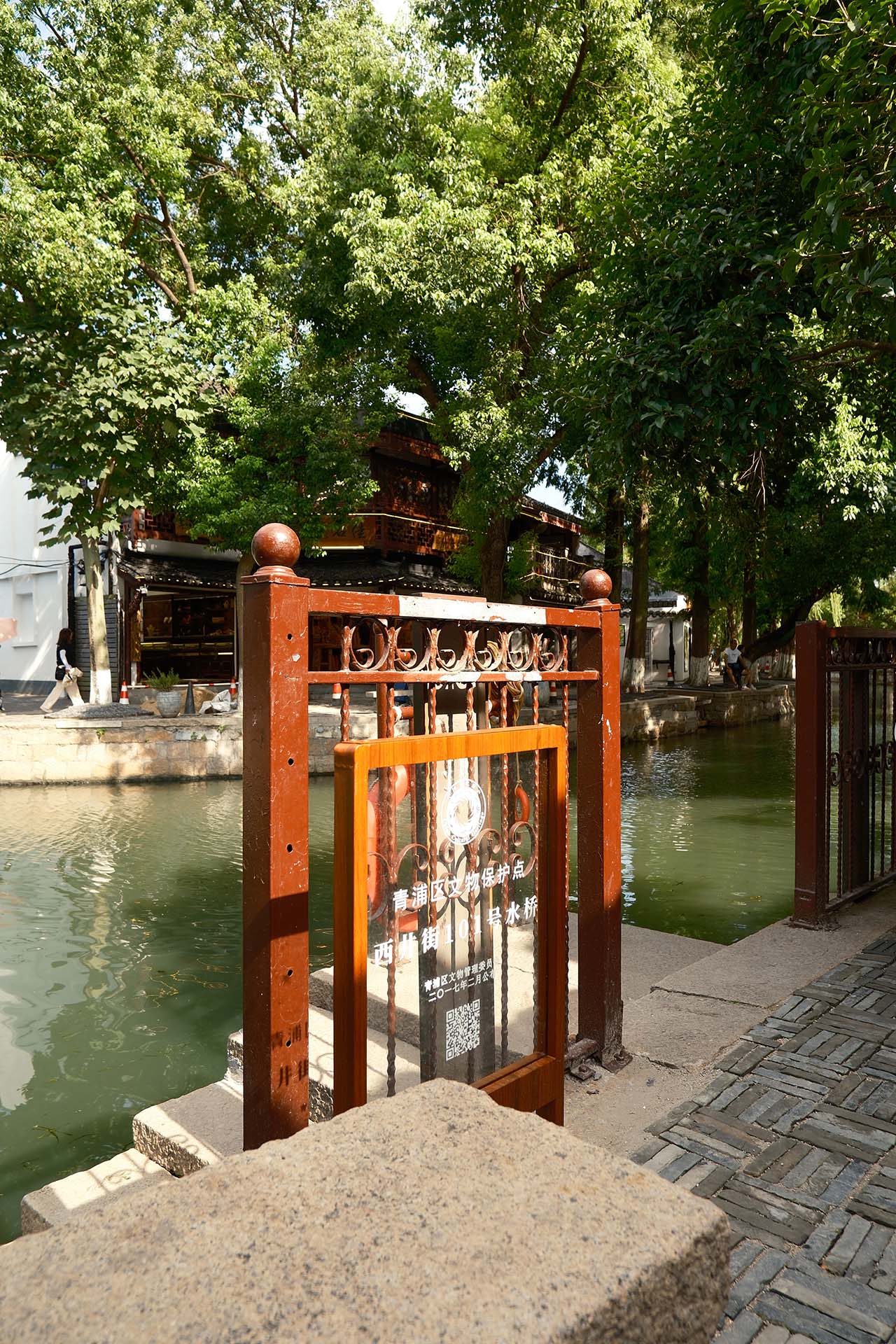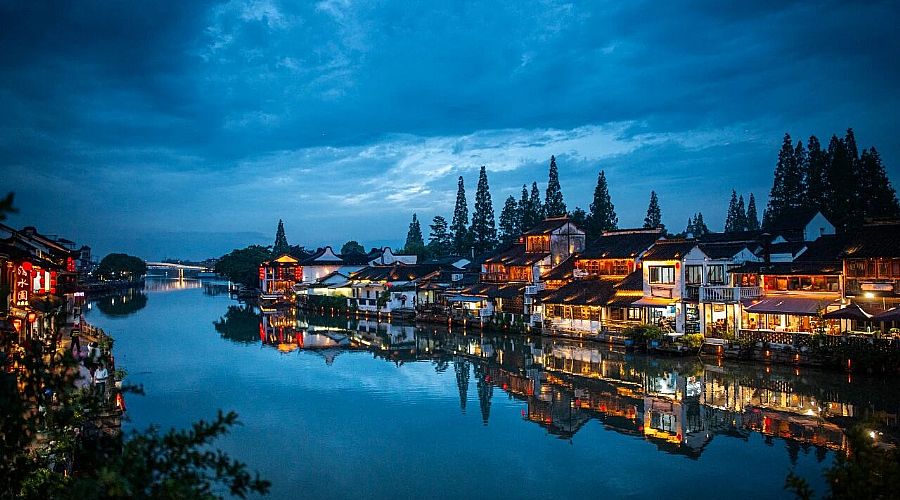Water Bridge at No. 101 Xijing Street

 Located not far from the entrance to Kezhi Garden—the first classical garden of Zhujiajiao—this water bridge at No. 101 Xijing Street is a distinctive feature of the town. Many visitors board boats here to begin their tour of the ancient water town, making this an iconic starting point.
Located not far from the entrance to Kezhi Garden—the first classical garden of Zhujiajiao—this water bridge at No. 101 Xijing Street is a distinctive feature of the town. Many visitors board boats here to begin their tour of the ancient water town, making this an iconic starting point.
Originally, the riverside was lined with boat houses and a large zhaobi (screen wall) several meters high. Since the garden’s owner, Ma Wenqing, held an honorary official title purchased rather than earned through imperial service, he avoided opening a grand east-facing main gate like formal officials. Instead, a screen wall was built to shield the entrance. Flanking the wall were two “Drum Pavilions”, where musicians would play drums and wind instruments to welcome guests with fanfare upon their arrival.
Today, the screen wall and pavilions are gone, but the water bridge remains in place, quietly witness the rise and fall of the Ma family.
This water bridge features an outwardly convex double-sided “saddle shape.” Its platform is constructed from three stone slabs—one smaller in the center and two larger ones on either side. The bridge surface measures a total width of 124 cm (slabs measuring 52 cm, 22 cm, and 50 cm respectively). The central slab is plain and uncarved. The platform slopes gently on both sides, each with six stone steps measuring 114 cm wide, 13 cm high, and 30 cm deep.
Of special interest is the mooring stone, adorned with a “vase with three halberds” motif. In this design, three fangtian huaji (a type of ancient halberd) emerge from a vase. The word for vase (瓶 píng) is a homophone for peace (平 píng), symbolizing safety and smoothness. The word for halberd (戟 jǐ) is a homophone for rank (级 jí), and in imperial China, the halberd symbolized military rank and official status. Together, the motif evokes the phrase “rising three ranks in peace” (平生三级), reflecting the lifelong aspirations of scholars in the Ming and Qing dynasties to succeed in the three levels of imperial examinations—xiucai (licentiate), juren (provincial graduate), and jinshi (metropolitan graduate).








